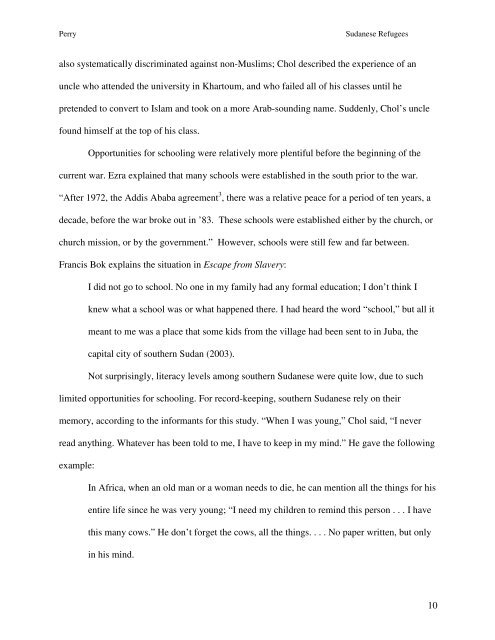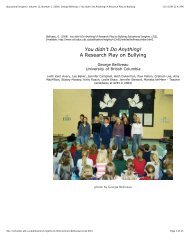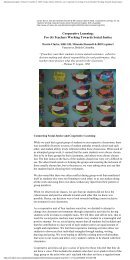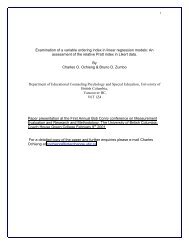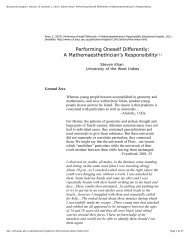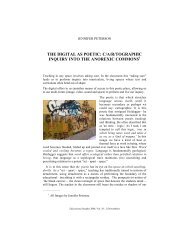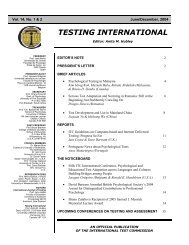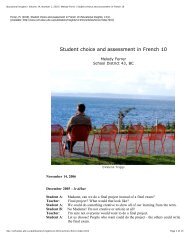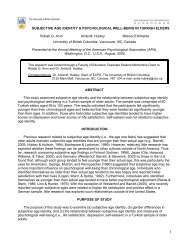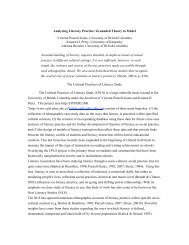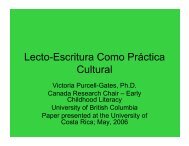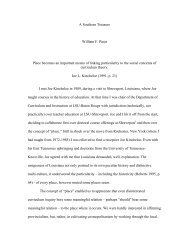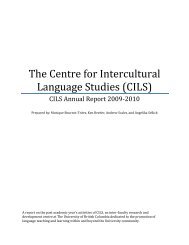Sharing Stories, Linking Lives: Literacy Practices Among ... - CPLS
Sharing Stories, Linking Lives: Literacy Practices Among ... - CPLS
Sharing Stories, Linking Lives: Literacy Practices Among ... - CPLS
Create successful ePaper yourself
Turn your PDF publications into a flip-book with our unique Google optimized e-Paper software.
Perry Sudanese Refugees<br />
also systematically discriminated against non-Muslims; Chol described the experience of an<br />
uncle who attended the university in Khartoum, and who failed all of his classes until he<br />
pretended to convert to Islam and took on a more Arab-sounding name. Suddenly, Chol’s uncle<br />
found himself at the top of his class.<br />
Opportunities for schooling were relatively more plentiful before the beginning of the<br />
current war. Ezra explained that many schools were established in the south prior to the war.<br />
“After 1972, the Addis Ababa agreement 3 , there was a relative peace for a period of ten years, a<br />
decade, before the war broke out in ’83. These schools were established either by the church, or<br />
church mission, or by the government.” However, schools were still few and far between.<br />
Francis Bok explains the situation in Escape from Slavery:<br />
I did not go to school. No one in my family had any formal education; I don’t think I<br />
knew what a school was or what happened there. I had heard the word “school,” but all it<br />
meant to me was a place that some kids from the village had been sent to in Juba, the<br />
capital city of southern Sudan (2003).<br />
Not surprisingly, literacy levels among southern Sudanese were quite low, due to such<br />
limited opportunities for schooling. For record-keeping, southern Sudanese rely on their<br />
memory, according to the informants for this study. “When I was young,” Chol said, “I never<br />
read anything. Whatever has been told to me, I have to keep in my mind.” He gave the following<br />
example:<br />
In Africa, when an old man or a woman needs to die, he can mention all the things for his<br />
entire life since he was very young; “I need my children to remind this person . . . I have<br />
this many cows.” He don’t forget the cows, all the things. . . . No paper written, but only<br />
in his mind.<br />
10


